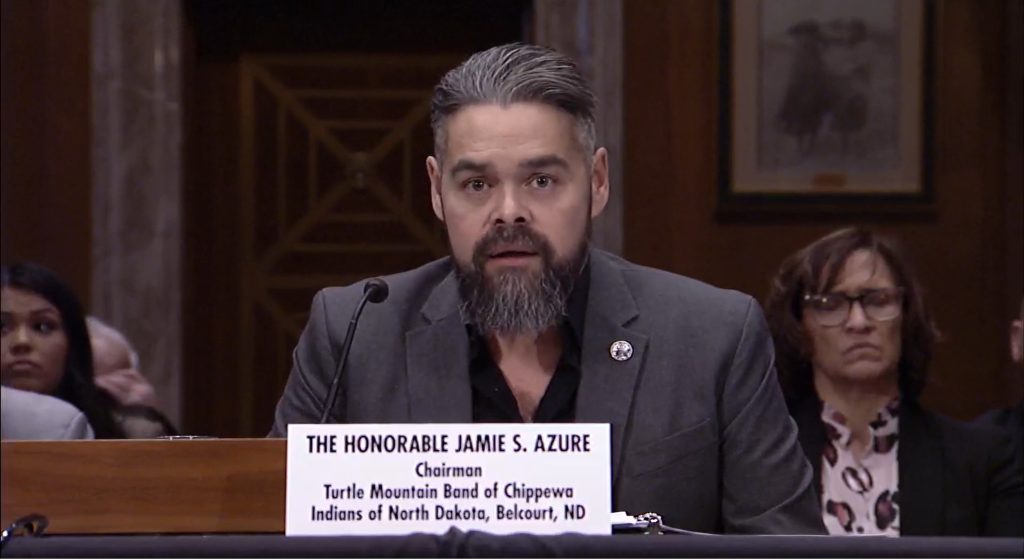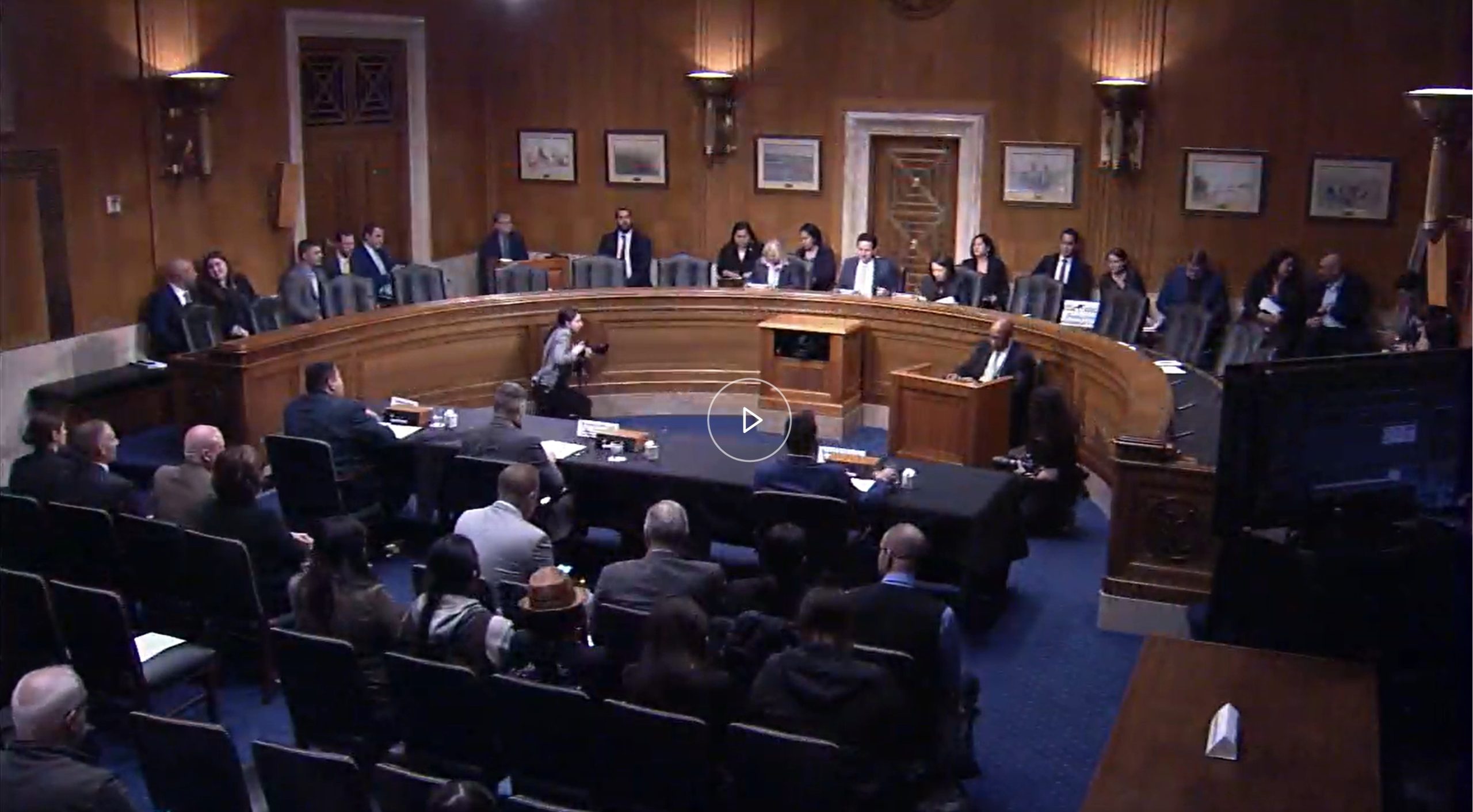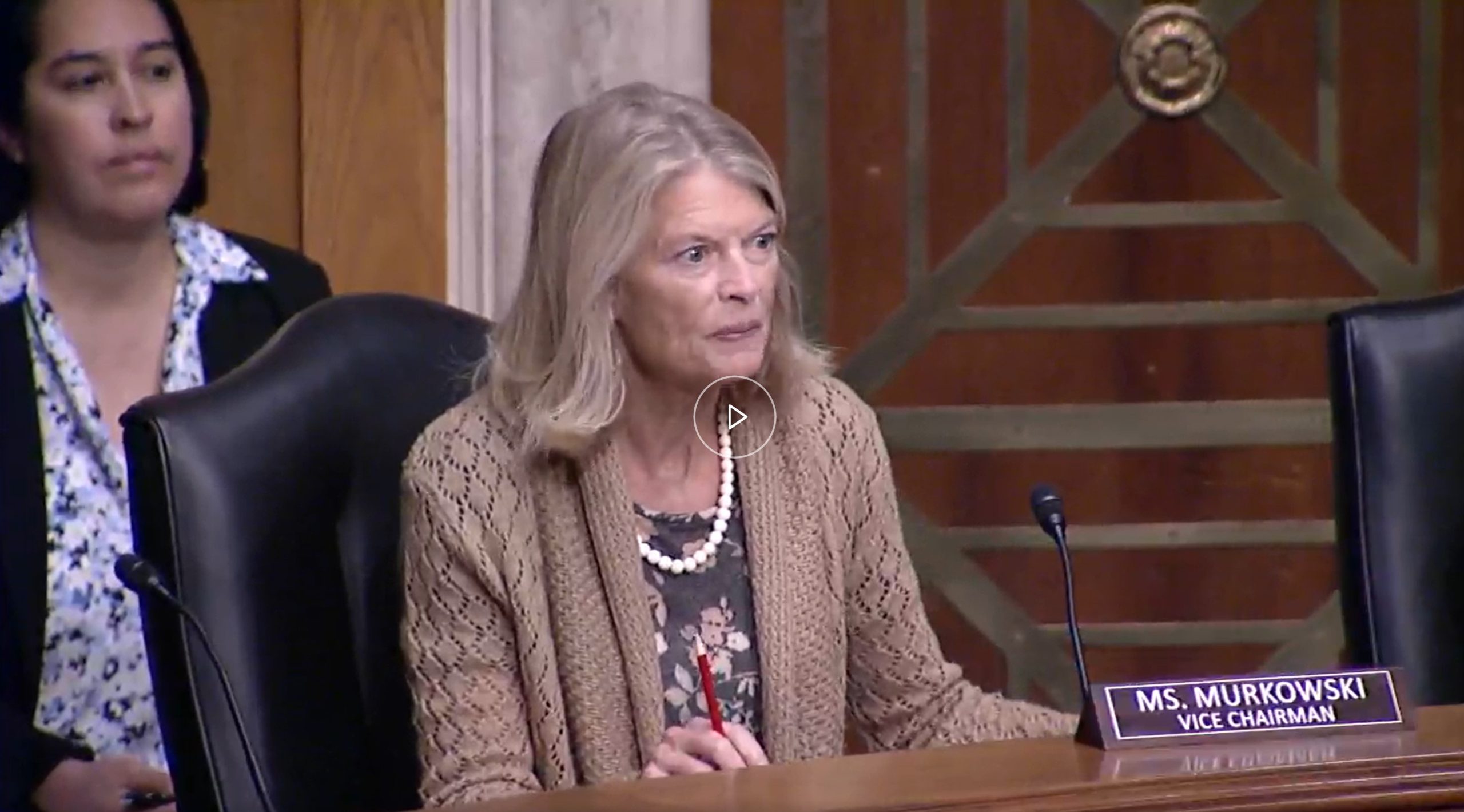Podcast: Play in new window | Download | Embed
Fentanyl is a potent synthetic opioid and leads to almost unprecedented rates of opioid overdose as it is up to 100 times stronger than morphine, according to the Centers of Disease Control & Prevention.
What makes fentanyl even more dangerous is its ability to camouflage as other drugs in a powdered form.
The U.S. Senate Committee on Indian Affairs held hearings on the crisis in Indian Country with testimony from tribal leaders and federal officials, as Hannah Bissett from our flagship station KNBA reports.
Watch The November Hearing
In November, several Senators on the Committee on Indian Affairs examined the impacts of fentanyl on Native communities.
This hearing took testimony from Native peoples to address the growing crisis in a variety of ways including the need for more federal support to tackle fentanyl use.
Jamie Azure is the chairman of the Turtle Mountain Band of Chippewa in North Dakota.
He spoke on the importance of this issue, and the implications these conversations have on Native youth.
“The committee needs to remember that we voted to sit in the chairs we sit in for the next generation…we as tribal leaders refuse to allow a generation to be lost.”
In a follow-up hearing in early December, the committee focused on federal perspectives on the growing crisis.
Watch The December Hearing
Roselyn Tso is the director of the Indian Health Service.
She discussed the mortality rates within Native communities and the necessity of the increment of care for those who are addicted to fentanyl.
“I and my senior leadership and all of Indian Health Services recognize the importance of working side by side with tribes and tribal leaders to develop comprehensive plans for addressing the opioid crisis in Indian country – but we also recognize that each community plan includes strategies that work for each community.”
U.S. Sen. Lisa Murkowski (R-AK) says that the call for policy changes and resources in this crisis has been heard nationwide.
In this hearing, she focused on the vulnerability of rural Alaskan communities.
“Drug traffickers are targeting our Native communities. They know these communities are more rural, they know that there is less law enforcement presence and they know they can make more money off of our Native people.”
Tribal leaders and Senators say this is only the beginning of discussions on how to aid in this crisis of fentanyl overdose in Native communities.
 The Indian Health Service is working to provide tens of thousands of children’s books to Native families across the country.
The Indian Health Service is working to provide tens of thousands of children’s books to Native families across the country.
The Mountain West News Bureau’s Kaleb Roedel has more.
The federal agency gave a $200,000 grant to Reach Out and Read, a national nonprofit that integrates reading into pediatric care.
The group will use the money to buy more than 30,000 children’s books.

They’ll be handed out to Indigenous families during well-child visits at dozens of Indian Health Service clinics.
That includes 11 in New Mexico, one in Colorado, and one in Wyoming.
Marty Martinez is Reach Out and Read’s CEO.
He says the books feature Indigenous characters and are written in half a dozen different Native languages.
“To give families a book for a two-year-old or a three-year-old that’s related to their culture, that ties in a Native Illustrator or author or a great story – and celebrates that – is so meaningful.”
And helpful to their development.
The group says about one-third of young children – and half of those living in poverty – start kindergarten without the skills they need to do well in school.

Courtesy Coquille Indian Tribe
The Coquille Tribe in Oregon announced Wednesday it will co-sponsor the first New Year’s Eve Sobriety Powwow.
Tribal leaders and event organizers say it’s a family-friendly event, which promotes a drug-and-alcohol-free alternative to celebrate the holiday.
Get National Native News delivered to your inbox daily. Sign up for our newsletter today.





